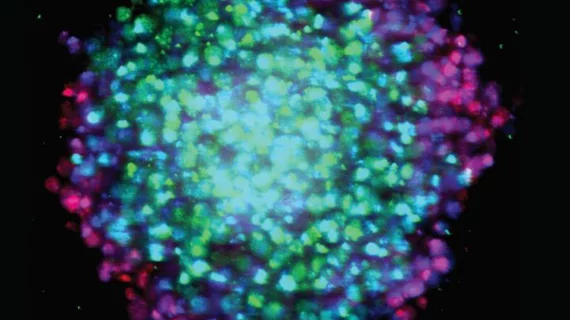Team aims to corral KRAS-mutated cancer by testing drugs on 3D spheres
Researchers at the Scripps Research Institute, in a study published online May 10 in Octogene, developed spheroids that can be used for high throughput screening, which uses the structures to test for reactions to various drugs.
"Until now, most of the research to screen for cancer drugs has used cells that are growing flat on a plate," adds Louis Scampavia, director of HTS Chemistry and Technologies at Scripps Research and one of the study's co-authors. "With these 3D spheroids, we emulate much more closely what's found in living tissues."
The team focused on KRAS gene, a cancer-driving protein, and other members of the related RAS gene family. These genes are present in as many as one in three of all cancers. They are especially common in pancreatic cancer, which is why the investigators used pancreatic cancer cell lines for the study.
"What's important about this research is that we're able to do studies using a form of cancer cells that is more physiologically relevant and better recapitulates how these cells appear in the body," said corresponding author Timothy Spicer, with Scripps.
More research needs to be done, but the team saw potential for benefits in cancer research and drug development.
"We would love to use this research to create a pipeline for new oncology drugs," said Spicer. "Many of the most promising compounds may be overlooked with 2D screening. This study provides direct evidence that screening for drugs using 3D structures of cancer cells may be more appropriate."

